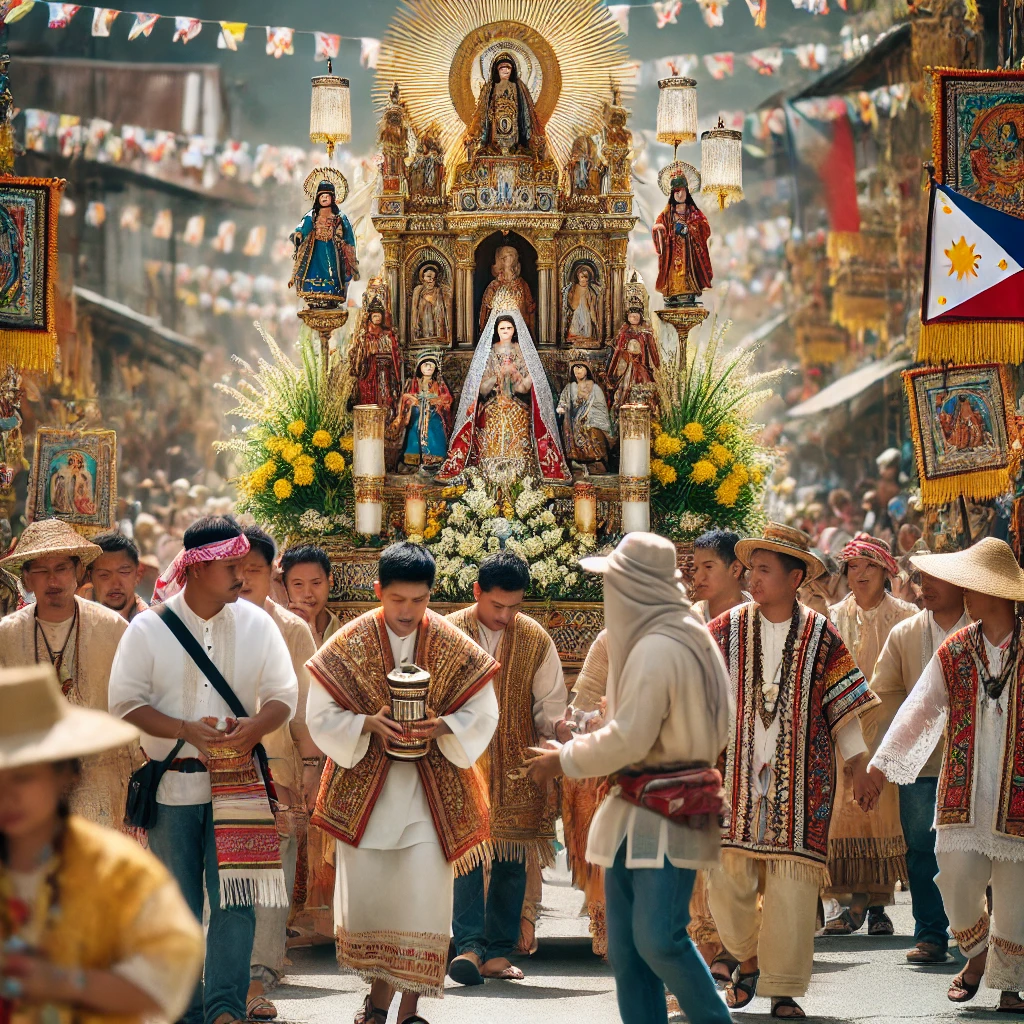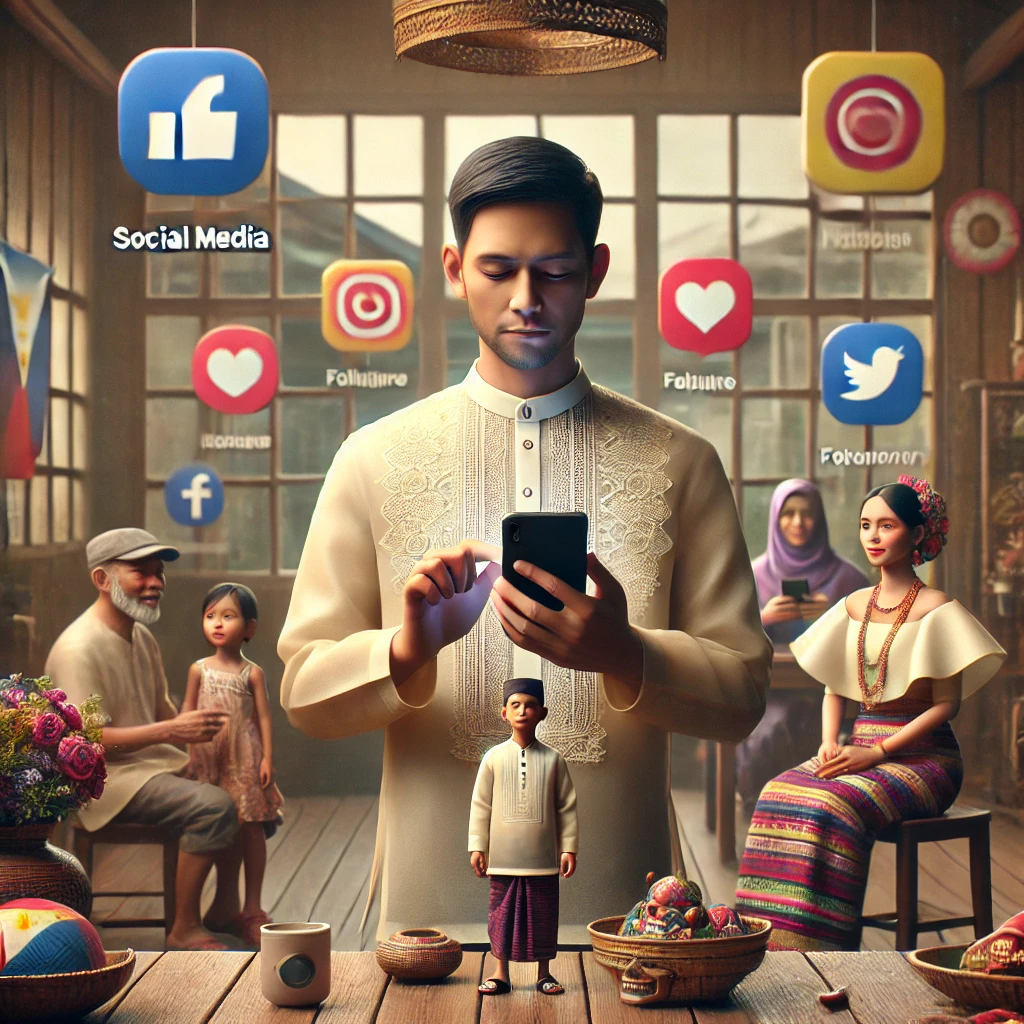Globalization, the process of increased interconnectedness and interdependence of world cultures and economies, has profoundly influenced societies worldwide. The Philippines, with its strategic location in Southeast Asia and historical ties to various cultures, has not been immune to the effects of this global phenomenon. This blog post explores the multifaceted impact of globalization on Filipino values, examining both the positive and negative consequences of this ongoing process. We will delve into how traditional Filipino values have been challenged, adapted, and in some cases, reinforced by the forces of globalization.
Historical Context of Filipino Values
Pre-colonial Era
Before the arrival of foreign influences, Filipino values were deeply rooted in indigenous traditions and beliefs. The pre-colonial Filipino society was characterized by a strong sense of community, respect for elders, and a harmonious relationship with nature. These values were passed down through generations via oral traditions, rituals, and daily practices. The concept of “bayanihan,” or communal unity and cooperation, was a cornerstone of Filipino society, reflecting the importance of collective effort and mutual support.
Colonial Influences
The arrival of Spanish colonizers in the 16th century marked the beginning of significant changes in Filipino values. The introduction of Christianity, particularly Catholicism, had a profound impact on the spiritual and moral landscape of the Philippines. Spanish influence also brought about changes in social structures, education, and governance. The subsequent American colonial period further shaped Filipino values, introducing concepts of democracy, capitalism, and a new educational system. These colonial experiences left an indelible mark on Filipino culture, creating a unique blend of indigenous, Spanish, and American values.
Post-independence Era
After gaining independence in 1946, the Philippines embarked on a journey of nation-building and cultural rediscovery. This period saw efforts to promote national identity and revive traditional values while navigating the challenges of modernization and international relations. The Marcos era (1965-1986) and the subsequent restoration of democracy also played significant roles in shaping contemporary Filipino values, emphasizing concepts such as people power and civil liberties.
The Onset of Globalization in the Philippines
Economic Liberalization
The 1980s and 1990s marked a turning point in the Philippines’ engagement with the global economy. Economic reforms, including trade liberalization and the opening of markets to foreign investment, accelerated the country’s integration into the global economic system. This period saw an increase in foreign direct investment, the growth of export-oriented industries, and the expansion of the service sector, particularly in areas such as business process outsourcing (BPO).
Technological Advancements
The rapid advancement of information and communication technologies played a crucial role in connecting the Philippines to the global community. The widespread adoption of the internet, mobile phones, and social media platforms facilitated unprecedented levels of information exchange and cultural exposure. This technological revolution not only transformed business and communication practices but also had a significant impact on social interactions and value formation, especially among younger generations.
Migration and Diaspora
The phenomenon of overseas Filipino workers (OFWs) became increasingly prominent in the late 20th and early 21st centuries. Millions of Filipinos sought employment abroad, driven by economic opportunities and the demand for skilled labor in other countries. This mass migration created a global Filipino diaspora, leading to the exchange of ideas, practices, and values between Filipinos abroad and those at home. The remittances sent by OFWs became a significant contributor to the Philippine economy, influencing both economic dynamics and social values.
Impact on Traditional Filipino Values
Family Structure and Dynamics
Globalization has had a profound impact on the traditional Filipino family structure. The extended family system, once a hallmark of Filipino society, has been increasingly challenged by urbanization and the demands of a globalized economy. Nuclear families have become more common, especially in urban areas, as young professionals migrate to cities or abroad for work opportunities. Despite these changes, family remains a central value in Filipino culture, with many adapting to maintain family bonds through technology and periodic reunions.
| Traditional Family Structure | Globalized Family Structure |
|---|---|
| Extended family living together | Nuclear families in separate households |
| Hierarchical, patriarchal | More egalitarian, shared decision-making |
| Local, community-based support | Transnational support networks |
| Face-to-face interactions | Technology-mediated communication |
Work Ethic and Career Aspirations
The global economy has significantly influenced Filipino work values and career aspirations. Traditional emphasis on job security and loyalty to a single employer has been challenged by the rise of a more dynamic and competitive job market. Many Filipinos, particularly the younger generation, now prioritize career growth, work-life balance, and global opportunities. The BPO industry, a product of globalization, has created new career paths and altered perceptions of desirable professions. However, the strong Filipino work ethic, characterized by resilience and adaptability, has remained a constant, helping Filipinos succeed in both local and international work environments.
Education and Language
Globalization has had a significant impact on the Philippine education system and language use. English proficiency, already emphasized due to American colonial influence, has become even more crucial in the global job market. This has led to an increased focus on English language education, sometimes at the expense of native languages. The curriculum has also evolved to include more globally relevant subjects and skills, preparing students for international competition. However, this shift has raised concerns about the preservation of local knowledge and indigenous languages.
Shifts in Social and Cultural Values
Individualism vs. Collectivism
One of the most notable impacts of globalization on Filipino values has been the tension between traditional collectivist attitudes and the growing influence of Western individualism. While Filipino culture has long emphasized the importance of community and family over individual desires, exposure to global media and ideas has led to a gradual shift towards more individualistic thinking, especially among urban youth. This change is reflected in career choices, lifestyle preferences, and personal relationships. However, many Filipinos continue to balance these influences, maintaining strong community ties while pursuing individual goals.
Consumerism and Materialism
The spread of global consumer culture has significantly impacted Filipino values related to material possessions and consumption. Traditional values of frugality and simplicity have been challenged by the allure of branded goods, modern technologies, and lifestyle products. Shopping malls have become central to urban Filipino life, serving not just as commercial spaces but as social and cultural hubs. While this shift has contributed to economic growth, it has also raised concerns about sustainable development and the preservation of non-materialistic values.
Gender Roles and Equality
Globalization has played a role in reshaping gender roles and promoting gender equality in the Philippines. Exposure to global feminist movements and changing economic realities have contributed to increased opportunities for women in education and the workforce. Traditional patriarchal structures are being challenged, with more women taking on leadership roles in various sectors. However, this progress is not uniform across all segments of society, and tensions between traditional and modern views on gender roles persist.
Impact on Religious and Spiritual Values
Religious Pluralism
While Catholicism remains the dominant religion in the Philippines, globalization has contributed to increased religious pluralism. Exposure to diverse belief systems through media, migration, and international exchanges has led to a more diverse religious landscape. This has fostered greater religious tolerance in some areas but has also led to tensions in others. The growth of evangelical Christian denominations and the increased visibility of Islam, particularly in urban areas, reflect this changing religious dynamic.
Secularization and Traditional Practices
Globalization has contributed to a degree of secularization in Filipino society, particularly among urban and educated populations. Scientific worldviews and secular philosophies have gained more prominence, challenging some traditional religious beliefs. However, this process is not uniform, and religious faith remains a central aspect of life for many Filipinos. Traditional religious practices have adapted to modern contexts, with technology often being used to facilitate religious observances and community building.
Environmental Values and Sustainability
Changing Attitudes Towards Nature
Globalization has had a complex impact on Filipino environmental values. On one hand, increased awareness of global environmental issues has led to greater concern for conservation and sustainability among many Filipinos. On the other hand, the pressures of economic development and consumerism have contributed to environmental degradation in many areas. Traditional Filipino values of harmony with nature are being rediscovered and reinterpreted in light of global environmental challenges.
Sustainable Development Initiatives
The Philippines has become increasingly involved in global sustainability initiatives, reflecting a growing awareness of environmental issues. This engagement has influenced policy-making and public attitudes towards environmental protection. However, balancing economic development with environmental conservation remains a significant challenge, highlighting the tensions between global economic pressures and local environmental values.
Political Values and Civic Engagement
Democracy and Governance
Globalization has influenced Filipino political values and civic engagement in various ways. Exposure to global democratic movements and international governance standards has shaped expectations of political leadership and government accountability. Social media and global communication networks have facilitated new forms of political participation and activism. However, these changes have also brought challenges, including the spread of misinformation and the polarization of political discourse.
National Identity in a Global Context
The process of globalization has prompted a reevaluation of Filipino national identity. While there is a strong sense of pride in Filipino culture and heritage, there is also an ongoing negotiation of what it means to be Filipino in a globalized world. This has led to efforts to promote Filipino culture globally while also embracing cosmopolitan values. The concept of “global Pinoy” reflects this dual identity, encompassing both national pride and global citizenship.
Economic Values and Work Culture
Entrepreneurship and Innovation
Globalization has fostered a growing culture of entrepreneurship and innovation in the Philippines. Exposure to global business practices and technologies has inspired many Filipinos to start their own businesses or pursue innovative career paths. The rise of the startup ecosystem and the growth of the tech industry reflect this shift in economic values. However, traditional values such as family-based businesses and community-oriented enterprises continue to play important roles in the Philippine economy.
Work-Life Balance
The global discourse on work-life balance has influenced Filipino work culture. While the strong work ethic remains, there is a growing emphasis on personal well-being and quality of life. This shift is particularly noticeable among younger professionals who seek careers that align with their personal values and allow for a balanced lifestyle. However, economic pressures and traditional expectations continue to challenge the full realization of work-life balance for many Filipinos.
Conclusion
The impact of globalization on Filipino values is a complex and ongoing process. While globalization has brought significant changes to traditional Filipino values, it has not completely eroded them. Instead, we see a dynamic interplay between global influences and local traditions, resulting in a unique blend of values that characterize contemporary Filipino society. The resilience and adaptability of Filipino culture have allowed for the integration of global elements while maintaining a distinct national identity.
As the Philippines continues to engage with the global community, the evolution of Filipino values will undoubtedly continue. The challenge for Filipino society will be to navigate this process in a way that preserves the best of traditional values while embracing the positive aspects of global culture. This balance will be crucial in shaping a Filipino identity that is both rooted in its rich cultural heritage and open to the opportunities and challenges of an interconnected world.
The ongoing dialogue between local and global values presents both challenges and opportunities for the Philippines. By critically engaging with global influences and consciously shaping their integration into Filipino culture, the nation can work towards a future that honors its traditions while embracing the benefits of global interconnectedness.
Disclaimer: This blog post is based on data and information available up to 2017. While every effort has been made to ensure accuracy, societal changes and new research may have emerged since then. Readers are encouraged to consult more recent sources for the most up-to-date information. If you notice any inaccuracies, please report them so we can correct them promptly.




